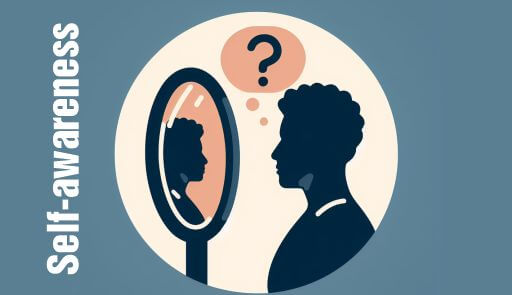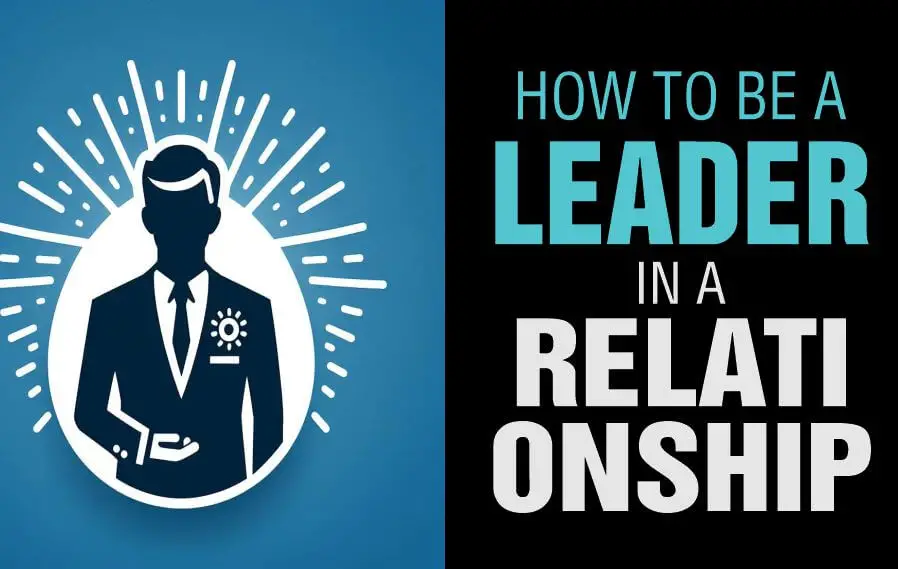Learn how to be a leader in a relationship with empathy, communication, and support to build trust for good leadership to avoid leadership failure.
In any relationship, whether it be a romantic partnership, friendship, or even a professional collaboration, leadership plays a crucial role in its success.
While the traditional notion of leadership often refers to positions of authority in professional settings, being a leader in a relationship goes beyond that.
It involves taking charge, making decisions, and empathetically guiding the relationship towards growth and harmony.
If you aspire to be a leader in your relationships, here are some key principles and actionable steps you can follow.
Suggested: Types of Leadership
Understanding the Dynamics of Relationships

Relationship dynamics refer to the patterns and interactions between individuals in a relationship.
These dynamics are shaped by various factors, including communication styles, power dynamics, emotional intimacy, and shared values.
Healthy relationship dynamics involve mutual respect, trust, effective communication, and understanding.
The ability to express oneself openly, actively listen to each other, and compromise is crucial.
Unhealthy dynamics may involve manipulation, control, lack of communication, or emotional and physical abuse.
Related: What is Referent Power?
Establishing boundaries, maintaining equality, addressing conflicts constructively, and providing support are keys to sustaining positive relationship dynamics.
Qualities of a Leader in a Relationship
A relationship leader takes initiative, values the other person’s input, and encourages mutual decision-making.
They provide guidance, empathy, and encouragement, creating a nurturing environment.
Additionally, they cultivate a collaborative atmosphere, prioritizing open communication and mutual respect to empower both partners in pursuing their goals and maintaining a harmonious relationship.
Related: Why the Best Leaders Rely on their Intuition
How to be a Leader in a Relationship
1. Cultivate Self-Awareness

Leadership in relationships starts with self-awareness. Understanding yourself, your values, strengths, and weaknesses is essential in effectively leading others.
Take time to reflect on your emotions, behaviours, and communication patterns.
Self-awareness allows you to manage your emotions and reactions, enabling you to respond more effectively during conflicts or challenging situations.
2. Communicate Openly and Honestly
Strong communication skills are fundamental to being a leader in any relationship.
Practice active listening, show genuine interest, and validate the feelings and perspectives of the other person.
Encourage an environment where both parties feel safe to express their thoughts and concerns.
Honesty and transparency build trust, while effective communication helps avoid misunderstandings and conflicts.
Related: What is Transformational Leadership?
3. Lead by Example
Leadership in relationships is not about dictating terms or imposing your will on others.
It is about inspiring and motivating through action. Demonstrate the qualities and behaviours you wish to see in the other person.
Be accountable for your actions, take responsibility, and always follow through on your commitments.
Leading by example establishes credibility and encourages the other person to emulate positive behaviors.
4. Encourage Mutual Respect
Respect forms the foundation of any successful relationship, but you have to respect yourself first before seeking respect from others.
Treat the other person with kindness, compassion, and understanding.
Show appreciation for their contributions and value their perspectives, even if they differ from your own.
Avoid belittling or dismissing their opinions. A leader in a relationship upholds the dignity and worth of the other person, creating a harmonious and supportive atmosphere.
Related: What is Laissez Faire Leadership?
5. Develop Empathy
Empathy is a crucial trait for effective leadership in relationships.
Make an effort to understand the feelings and needs of the other person.
Put yourself in their shoes and try to see situations from their perspective.
Empathy helps you respond with compassion and understanding, enhancing strong emotional connections and trust within the relationship.
6. Encourage Growth and Development
A leader in a relationship is committed to the growth and well-being of both individuals involved.
Support the other person’s aspirations, goals, and personal development.
Encourage them to explore new opportunities, take risks, and fulfill their potential.
Provide constructive feedback and guidance, helping them overcome obstacles and learn from their experiences.
As a leader, you have to promote an environment of growth and continuous improvement.
Related: Understanding the Autocratic Leadership
7. Encourage Collaboration and Teamwork
Leadership in relationships is not about control or dominance; it is about collaboration and teamwork.
Involve the other person in decision-making processes, recognizing their expertise and respecting their contributions.
Work together towards shared goals and find mutually beneficial solutions.
Embrace compromise when necessary, prioritizing the harmony and unity of the relationship.
8. Practice Emotional Intelligence
Emotional intelligence is a vital skill for effective leadership in any relationships.
It involves recognizing and managing your own emotions while being sensitive to the emotions of others.
Be aware of the impact your words and actions have on the other person.
Practice empathy, regulate your emotions, and respond thoughtfully rather than react impulsively.
Emotional intelligence strengthens emotional bonds, trust and understanding.
Related: Understanding Democratic Leadership
9. Support and Encourage Independence
While leadership involves guiding and supporting, it is important to allow the other person to maintain their independence.
Respect their autonomy and individuality. Encourage them to pursue their passions, maintain their social connections, and have personal time and space.
A leader in a relationship understands that creating a healthy balance between interdependence and independence is essential for personal growth and a fulfilling partnership.
10. Continually Learn and Grow
Leadership in relationships is a continuous journey of learning and growth.
Seek feedback from your partner or friends and genuinely consider their perspective.
Stay open-minded and be willing to adapt your approach when necessary.
Continually educate yourself on effective communication, conflict resolution, and relationship-building skills.
By prioritizing personal development, you are better equipped to lead and nourish the relationships in your life.
Related: What is Quiet Leadership?
How to be a Leader in a Romantic Relationship

Being a leader in a romantic relationship involves many of the same principles as being a leader in any other type of relationship.
However, the dynamics in a romantic relationship can be complex and sensitive.
Here are some specific steps to help you become a leader in your romantic relationship:
Build a Foundation of Trust: Yes! Trust is the cornerstone of any successful relationship. Be honest, reliable, and consistent in your words and actions. Show your partner that they can depend on you and confide in you.
Communicate Clearly: Effective communication is vital in a romantic relationship. Practice active listening and make your partner feel heard and valued. Share your thoughts and feelings openly and honestly. Be willing to compromise and find solutions together when conflicts arise.
Be Empathetic and Understanding: Empathy is particularly important in intimate relationships. Put yourself in your partner’s shoes and seek to understand their emotions, needs, and desires.
Take Initiative: Leaders are proactive and take initiative. Show interest in your partner’s life and actively contribute to the relationship. Plan dates, surprise them with acts of kindness, and make an effort to keep the romance alive.
Respect Boundaries: Respect your partner’s boundaries and personal space. Understand that both individuals in a relationship should have their own sense of self and interests. Encourage their personal growth and support their autonomy.
Handle Conflicts with Maturity: Conflicts are inevitable in any relationship. As a leader, it’s important to approach conflicts with maturity and emotional intelligence. Maintain control of your emotions, avoid personal attacks, and focus on finding a resolution.
Support Their Dreams and Goals: A romantic relationship leader encourages personal growth, supports aspirations, and helps identify and achieve goals, strengthening the bond and admiration.
Stay Committed and Loyal: Leadership in a romantic relationship demands commitment, loyalty, and integrity. Consistent actions and words, coupled with reliability, are essential to demonstrate commitment and build trust.
Frequently Asked Questions
What does it mean to be a leader in a relationship?
Being a leader in a relationship involves fostering trust, open communication, mutual respect, and supporting your partner’s growth and well-being.
How a man leads in a relationship?
A man can lead in a relationship by demonstrating empathy, actively listening, providing support, and fostering a collaborative and respectful partnership.
How can I take the lead in my relationship?
You can take the lead in your relationship by initiating open communication, showing empathy, making decisions together, and supporting your partner’s aspirations.
How can a leader show love?
A leader can show love by demonstrating empathy, providing support, fostering a nurturing environment, and actively working to understand and meet their partner’s needs.
Final Thoughts
Knowing how to be a leader in a relationship revolves around self-awareness, effective communication, mutual respect, empathy, and encouraging growth.
By following these principles and taking actionable steps, you can create a strong foundation for fulfilling relationships, whether they are romantic, friendship-based, or professional.
Remember, leadership is not about control but rather about guiding, inspiring, and nurturing the connections you value.
References:
- https://edlatimore.com/how-to-take-the-lead-in-a-relationship/
- https://blairglaser.com/words/4-ways-to-lead-in-relationship/
- https://mantalks.com/how-to-be-the-leader-in-a-relationship/
Pyo Merez (PsyD) is a distinguished adolescent and adult psychologist at the forefront of mental health advocacy.
With expertise in cognitive and developmental psychology, focusing on social relationships, cultural contexts, and individual differences, Pyo has dedicated his career to empowering adolescents and adults.
As a sought-after speaker and panelist, Pyo shares invaluable insights on issues affecting young people, contributing to a deeper understanding of mental health and well-being in today's society.

